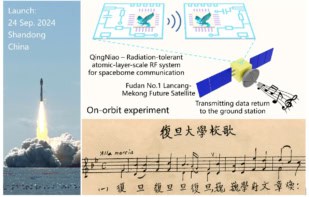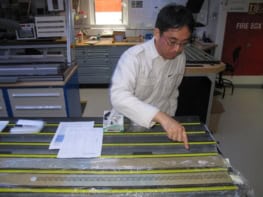Six "grand challenges" ranging from understanding the origins of the universe to creating new materials have been identified by a high-level panel set up to provide an overview of the state of basic physics research in the US. The challenges are accompanied by nine recommendations on education, national security, planning and organization, the role of information technology in physics, and the level of government support for physics in the US.
The challenges and recommendations are listed in the final report of the Physics in a New Era series, which has been produced for the board on physics and astronomy of the US National Research Council (NRC) by a committee chaired by Thomas Appelquist of Yale University. Previous reports in the series have covered all the major subfields of physics. The NRC traditionally conducts a survey of physics every decade.
The six grand challenges identified by the panel are: developing quantum technologies; understanding complex systems; applying physics to biology; creating new materials; exploring the universe; and unifying the forces of nature. The committee identified the six areas “based on their intrinsic scientific importance, their potential for broad impact and application, and their promise for major progress during the next decade.”
The committee also recommends that federal investment in basic physics research in the US relative to GDP should be restored to the levels of the early 1980s, thereby reversing a fall of 20% in real terms over this period. The panel also advises physics departments to revise their curricula to ensure that they appeal to a wide range of students and make connections to other areas of science and technology. Other recommendations cover the need to support small groups and single investigators at universities, to re-establish long-term basic research related to national security, and to encourage partnerships between government, universities and industry.
The panel also calls on the US government to “develop effective mechanisms for US participation and leadership in international scientific projects, including clear criteria for entrance and exit.”



